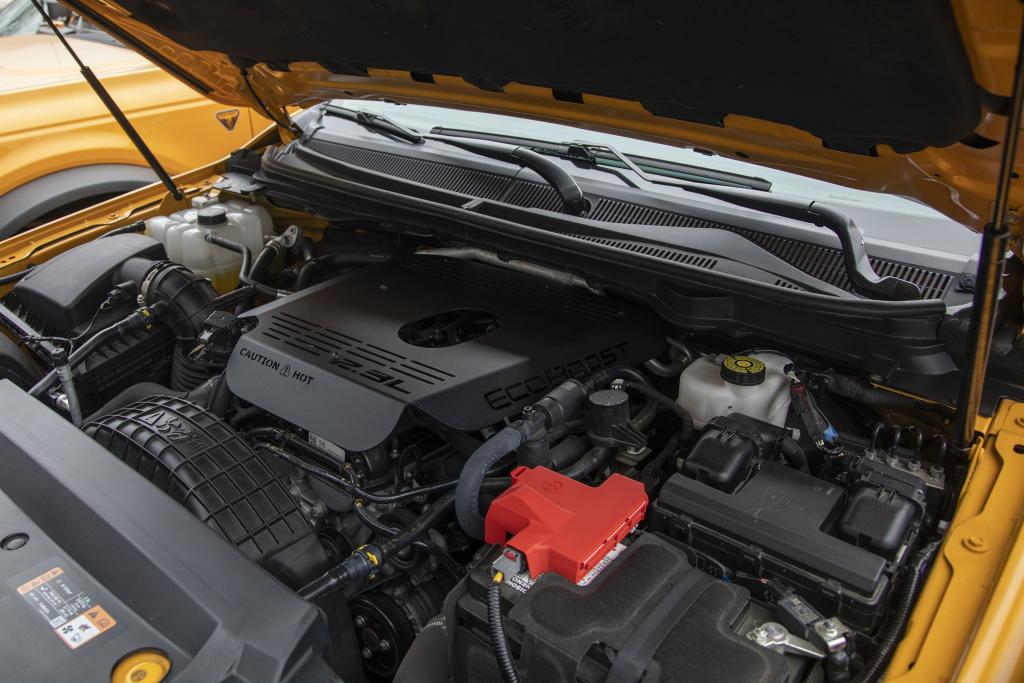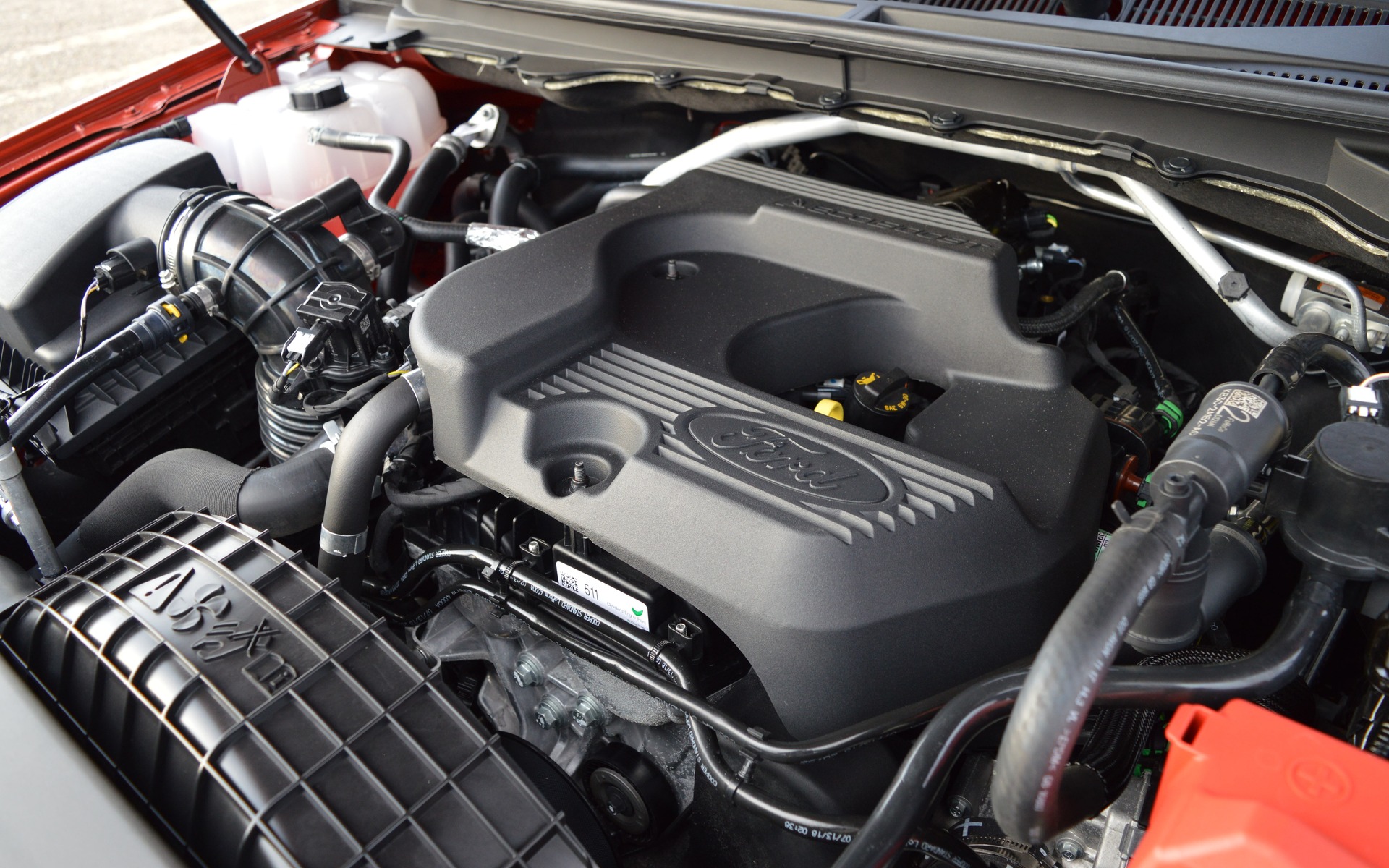Just How to Choose the Right Cars And Truck Engine for Maximum Efficiency and Efficiency
Picking the appropriate automobile engine to accomplish an optimal equilibrium of efficiency and performance necessitates a nuanced understanding of various engine kinds and their specific attributes (2.2 ford ranger engine). Factors such as engine displacement, the number of cylinders, and fuel kind play an essential function in establishing both power result and gas economic situation.
Recognizing Engine Types
When selecting a cars and truck, among the most essential elements to think about is the engine type, which offers as the heart of the car. The engine type substantially influences the automobile's general performance, long life, and suitability for your driving requirements. There are mainly 3 engine types to think about: internal burning engines (ICE), hybrid engines, and electric engines.
Interior burning engines continue to be the most usual, operating gas or diesel. They are understood for their power and acceleration, making them suitable for performance-oriented automobiles. Nonetheless, they might fall brief in gas efficiency and ecological effect.
Hybrid engines combine an interior combustion engine with an electrical motor, supplying an equilibrium between efficiency and gas economy. They are increasingly prominent for drivers looking for lowered discharges while still delivering ample power.
Electric engines, powered completely by batteries, are getting grip due to their ecological benefits and reduced running prices. They offer instantaneous torque and a quiet driving experience, making them excellent for metropolitan commuting.

Efficiency vs. Efficiency
Selecting the right engine kind involves weighing the trade-offs between efficiency and performance. Efficiency normally refers to how well an engine can supply power and velocity, which is often connected with bigger variation engines or those with turbocharging abilities. These engines normally offer thrilling driving experiences and quick feedback times, making them preferred amongst enthusiasts.
On the various other hand, effectiveness concentrates on fuel economic climate and reduced discharges. Smaller engines, particularly those furnished with advanced modern technologies such as straight fuel shot and variable shutoff timing, often tend to provide far better miles per gallon and minimized carbon footprints. While these engines might compromise some power compared to their bigger counterparts, they typically master daily driving scenarios where high efficiency is not always needed.
Ultimately, the option in between performance and effectiveness joints on individual top priorities. A chauffeur who values perky driving might prioritize a high-performance engine, while a person seeking cost-efficient commuting may lean toward an efficient alternative. Recognizing these compromises is essential for making a notified choice that aligns with your driving needs and way of life, making certain that the chosen engine kind complements your expectations for both performance and performance.
Key Specs to Take Into Consideration
Understanding vital requirements is important for making a notified decision regarding the ideal car engine. When choosing an engine, numerous vital variables warrant factor to consider to ensure optimal performance and efficiency.
First of all, engine displacement, measured in liters or cubic centimeters, is an important requirements. It suggests the overall quantity of the engine's cylinders and generally correlates with power result; bigger variations often generate even more power. Next off, the number of cyndrical tubes plays a significant function in efficiency qualities. Engines with more cyndrical tubes can give smoother procedure and higher power, while smaller sized arrangements can boost gas efficiency.
In addition, the engine's arrangement, whether inline, V-type, or rotary, influences the total style and performance attributes of the car - 2.2 ford ranger engine. Turbocharging and turbo charging innovations need to also be evaluated; these increase an engine's power result without significantly enhancing its dimension, therefore boosting performance
Fuel kind is an additional essential factor to check my source consider, as it impacts both efficiency and prices. The engine's compression proportion impacts performance and power delivery; a higher ratio usually leads to much better performance, yet might require superior gas. By meticulously examining these requirements, you can choose an engine that aligns with your efficiency and performance goals.
Reviewing Driving Requirements
Assessing driving requirements is an essential action in identifying the right vehicle engine for your way of living and use patterns. Begin by assessing your day-to-day driving habits, consisting of the frequency and duration of trips. If your driving primarily contains brief commutes in metropolitan settings, a smaller sized engine with excellent gas effectiveness might suffice. Alternatively, if you regularly take on long-distance journeys or require towing abilities, an extra effective engine may be needed.
Think about the terrain you usually navigate. Hilly or sturdy landscapes may require an engine with he has a good point higher torque for far better efficiency. Additionally, mirror on passenger and cargo needs; larger households or those that deliver goods might gain from lorries with raised power and ability.
It's likewise necessary to review your gas preferences. Diesel motor typically supply superior torque and gas economy for much heavier vehicles, while fuel engines may supply a smoother and quieter ride. Lastly, consider environmental considerations, as crossbreed or electrical engines can offer an extra lasting choice without sacrificing efficiency. By thoroughly recognizing your driving needs, you can make an informed decision that lines up with both efficiency assumptions and efficiency objectives.
Future Trends in Engine Innovation
As the automotive industry proceeds to evolve, technologies in engine modern technology are paving the means for more sustainable and effective driving experiences. One considerable trend is the shift towards electrification, with hybrid and totally electric powertrains getting importance. Car manufacturers are investing heavily in battery innovation to enhance power thickness and decrease charging times, inevitably improving the functionality of electrical cars (EVs)
Another emerging pattern is the advancement of hydrogen fuel cell engines. 2.2 ford ranger engine. These systems use the possibility for zero-emission driving while offering refueling times similar to conventional gas engines. In addition, developments in combustion modern technology, such as variable compression ratios and improved turbocharging, are enhancing conventional inner combustion engines for better efficiency and efficiency
Digital combination is likewise an important element of future engine innovation. The implementation of synthetic intelligence and device discovering permits real-time information analysis, making it possible for smarter engine monitoring systems that adjust to driving problems and boost fuel efficiency.

Verdict
In verdict, selecting the ideal car engine demands a detailed assessment of numerous variables, consisting of engine type, efficiency requirements, and efficiency objectives. By comprehending the differences between various engine Discover More types and taking into consideration essential specifications, individuals can straighten their options with specific driving requirements. As innovations in engine innovation remain to emerge, staying educated concerning future patterns will certainly further boost decision-making, eventually resulting in an automobile that stabilizes performance and gas performance efficiently.
Choosing the appropriate car engine to accomplish an optimum balance of performance and performance demands a nuanced understanding of various engine types and their particular attributes. There are mainly 3 engine kinds to consider: interior combustion engines (ICE), hybrid engines, and electric engines.
Performance normally refers to just how well an engine can deliver power and acceleration, which is frequently associated with larger variation engines or those with turbocharging abilities. Diesel engines commonly supply exceptional torque and fuel economy for much heavier automobiles, while gas engines may give a smoother and quieter trip.In conclusion, selecting the appropriate automobile engine demands a thorough analysis of numerous elements, including engine type, performance requirements, and effectiveness objectives.
 Alana "Honey Boo Boo" Thompson Then & Now!
Alana "Honey Boo Boo" Thompson Then & Now! Joseph Mazzello Then & Now!
Joseph Mazzello Then & Now! Anthony Michael Hall Then & Now!
Anthony Michael Hall Then & Now! Melissa Joan Hart Then & Now!
Melissa Joan Hart Then & Now! Danny Pintauro Then & Now!
Danny Pintauro Then & Now!